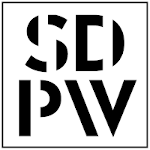Wykaz obszarów badawczych:
| # | Research Area | Dziedzina naukowa |
|---|---|---|
| 1 |
Synthesis, studies on properties and application of nanoparticles in the construction of biotests and biosensors - the research will involve synthesizing hybrid nanoparticles with the desired magnetic, optical and catalytic properties, which after surface modification with selected receptors (antibodies, oligonuclotides or others) will be used in the development of modern bioanalytical tools for determination of clinically significant disease biomarkers.
|
Chemical-Sciences |
| 2 |
Studies on interactions of clinically significant analytes with the receptor layers using label-free analytical techniques - the research will be focused on investigations of new receptors enabling the development of biosensors and biotests for the detection or determination of clinically relevant analytes (mainly disease biomarkers). The research will be based on techniques enabling the determination of kinetic and thermodynamic parameters of interactions used in the construction of such devices (bioreceptor - biomarker), e.g. SPR.
|
Chemical-Sciences |
| 3 |
Synthesis and application of nanoparticles in therapies - as part of the research, nanoparticles with the desired optical, magnetic and catalytic properties, which can be used in anti-cancer therapies through the ability to generate heat under the influence of infrared radiation, the applied magnetic field or the ability to catalytically generate reactive oxygen species and other types of toxic radicals, will be synthesized. The nanoparticles will be modified with receptors / ligands that recognize proteins characteristic for cancer cells.
|
Chemical-Sciences |
| 4 |
The use of electrospun materials in the construction of modern bioanalytical tools - Electrospinning is a modern technique for producing polymeric mats (both from natural and synthetic polymers) with an expanded surface area and high porosity. The method also makes it possible to produce composite structures enriched with nanoparticles, which boosts their range of applications by giving them new properties. Such mats can be utilized in bulk technologies (catalytic processes or wastewater treatment) or for more sophisticated biomedical or bioanalytical applications. Their numerous unique features also allow their use in the construction of biosensors and biotesters as transducer modifiers, as well as layers in/on which the most important receptors, from the point of view of these bioanalytical devices, are immobilized.
|
Chemical-Sciences |
